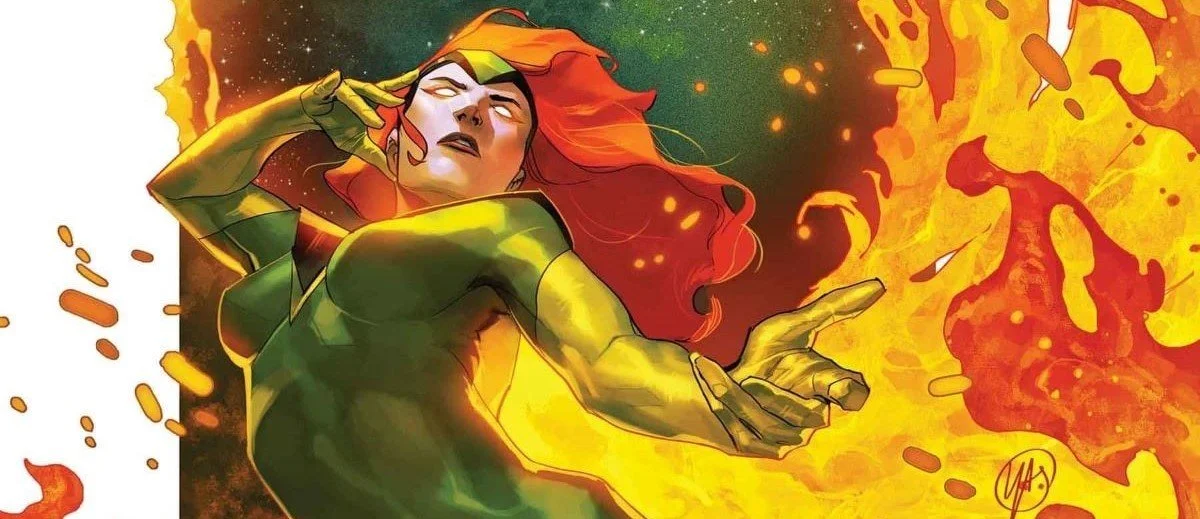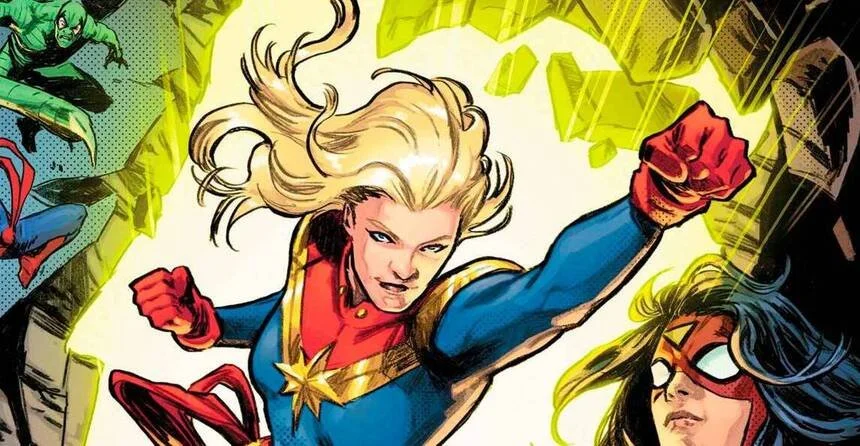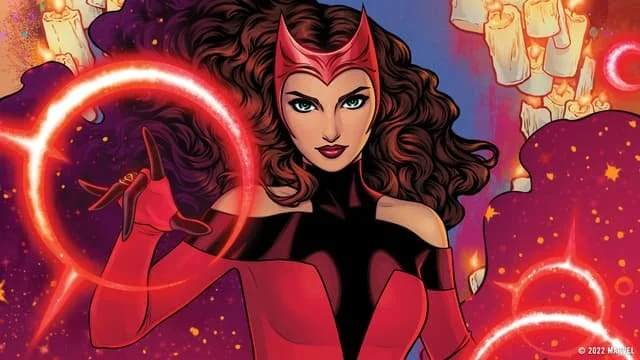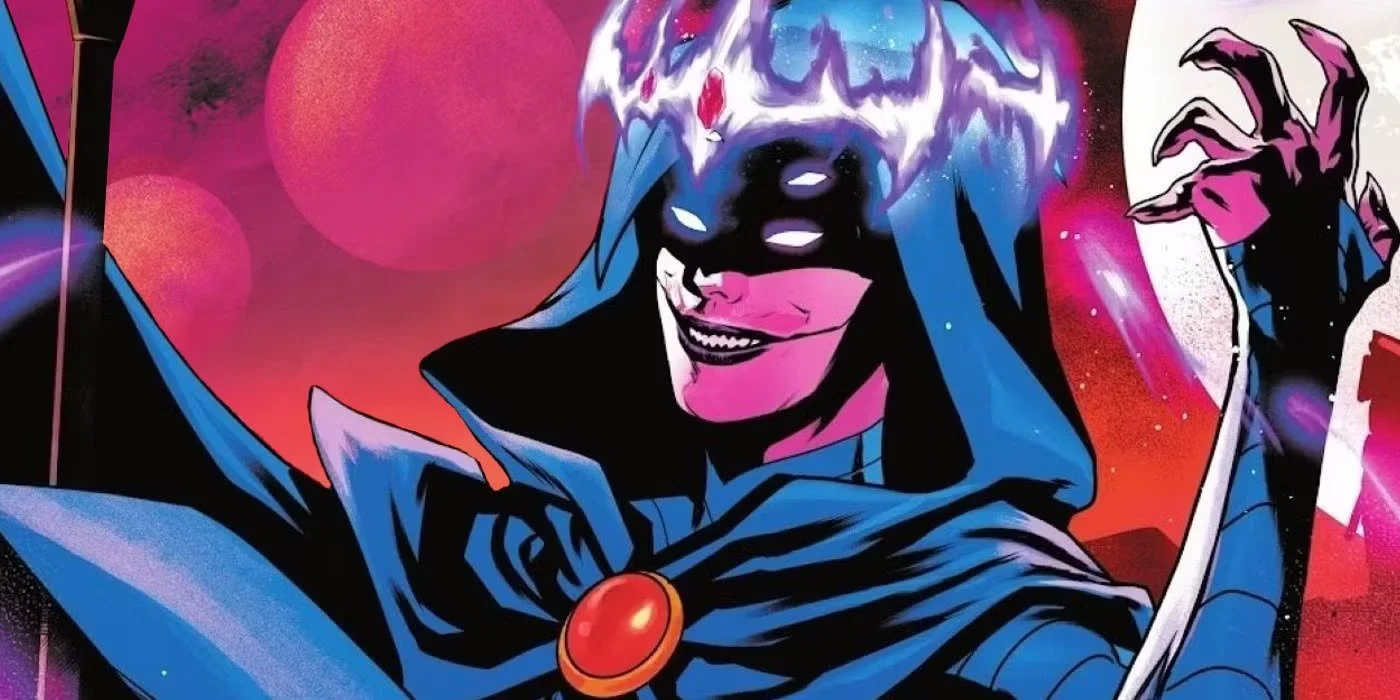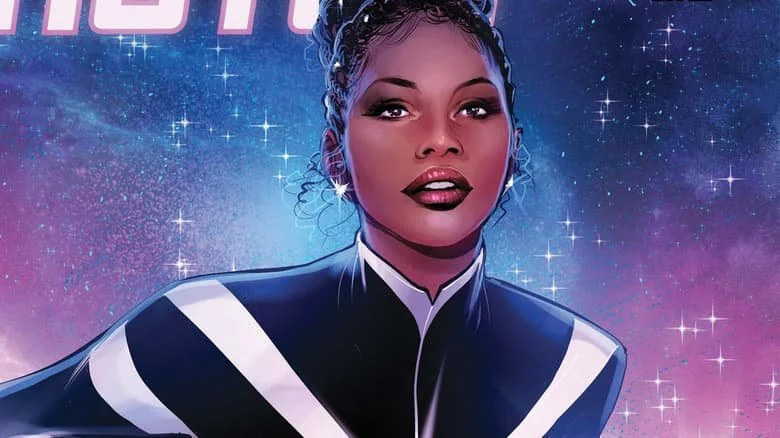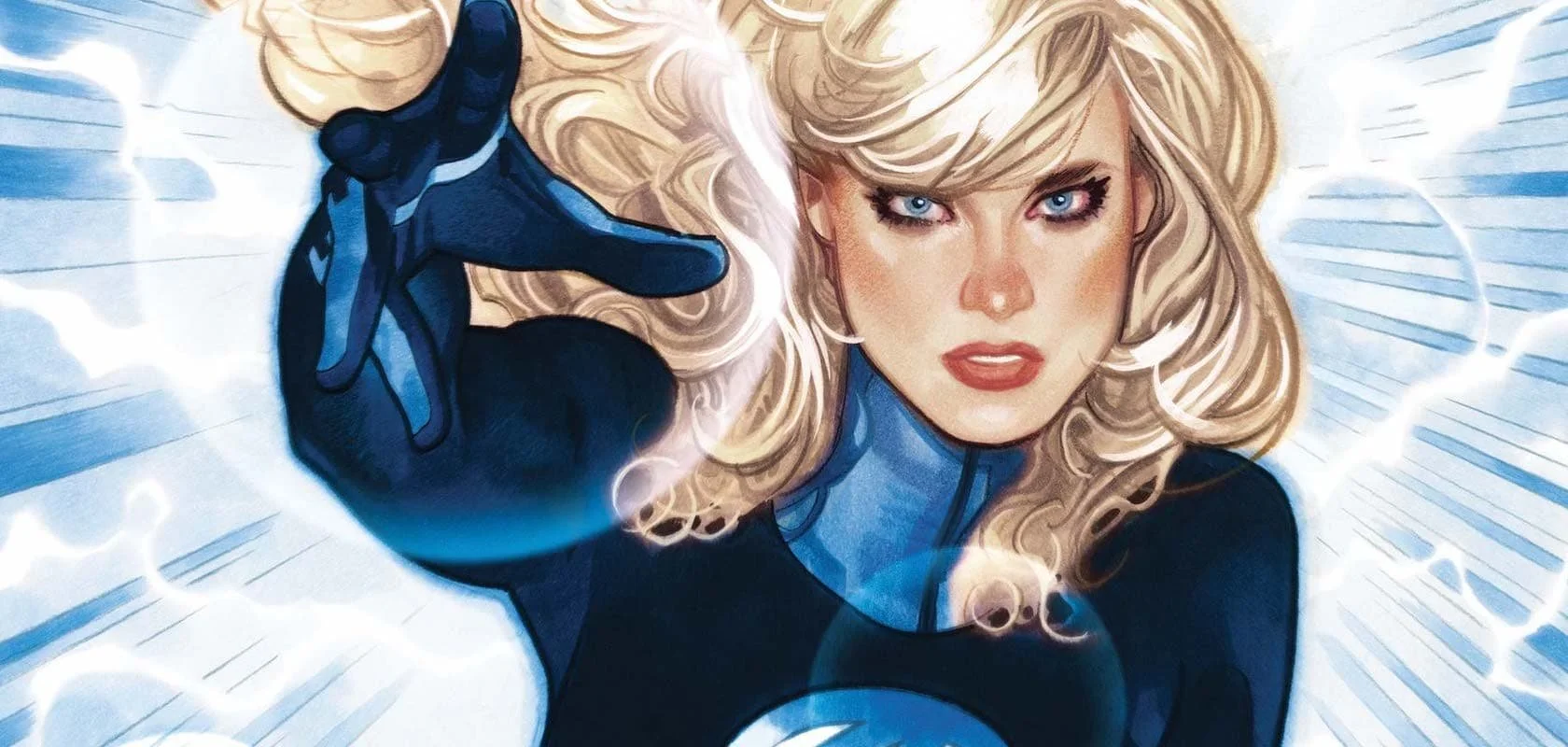Top 50 Female Superheroes: Ranked by Power, Popularity & Legacy (2025)
From invisible jets to cosmic power punches, female superheroes have shaped the comic book world for decades—but who leads the pack in 2025? Once relegated to sidekick roles or damsels in distress, these incredible characters have burst through the glass ceiling, commanding their series, headlining blockbuster films, and inspiring millions worldwide. Their stories reflect not just immense power, but also resilience, intelligence, and unwavering commitment to justice.
In this comprehensive ranking, we delve into the pantheon of female superheroes from across the comic book spectrum, including titans from Marvel and DC, captivating figures from independent publishers, and rising stars from the world of webcomics and anime. Our ranking criteria go beyond raw strength, considering their enduring legacy, cultural impact, and the sheer popularity they’ve amassed among fans.
WOULD you agree with our choices? Is your favourite hero missing from the top? Read on to discover who we’ve crowned the most influential and beloved female superheroes of all time, and be sure to let us know your picks in the comments or by participating in our upcoming community poll!
Why Female Superheroes Matter in Pop Culture
The evolution of female superheroes is a testament to the changing landscape of pop culture and society's growing demand for diverse and empowering representation. For decades, the comic book world, like many forms of media, was largely male-dominated. While strong female characters existed, they often played supporting roles to their male counterparts.
However, the tide has dramatically shifted. The rise of female superheroes in prominent roles, both in comic books and increasingly in film and television, signifies a crucial cultural transformation. Characters like Wonder Woman, Captain Marvel, and Black Widow have transcended their comic panels to become household names, proving their immense drawing power and appeal. This shift isn't just about selling more tickets or comics; it's about reflecting and shaping societal values.
The impact on younger readers, particularly girls, is profound. Seeing powerful, intelligent, and complex female superheroes take center stage provides crucial role models. They demonstrate that strength comes in many forms—physical prowess, sharp intellect, emotional resilience, and unwavering moral compass. These characters encourage girls to aspire to greatness, to embrace their unique abilities, and to fight for what they believe in. Fandoms, too, have embraced this change, with vibrant cosplay communities, online discussions, and a collective celebration of diverse heroes. This representation validates the experiences and aspirations of a broader audience, making the world of superheroes more inclusive and reflective of its global fanbase.
Top 10 Most Iconic Female Superheroes of All Time
These female superheroes have not only stood the test of time but have also left an indelible mark on pop culture, influencing generations of readers and creators.
| Rank | Hero | Publisher | Power Highlight | Debut Year |
|---|---|---|---|---|
| 1 | Wonder Woman | DC | God-tier strength | 1941 |
| 2 | Storm | Marvel | Weather manipulation | 1975 |
| 3 | Captain Marvel | Marvel | Cosmic energy blasts | 1968 |
| 4 | Jean Grey | Marvel | Telepathy, telekinesis | 1963 |
| 5 | Batgirl | DC | Detective genius | 1961 |
| 6 | Scarlet Witch | Marvel | Reality warping | 1964 |
| 7 | Supergirl | DC | Kryptonian powers | 1959 |
| 8 | Catwoman | DC | Anti-hero agility | 1940 |
| 9 | She-Hulk | Marvel | Hulk-level strength + intellect | 1979 |
| 10 | Raven | DC | Empathic magic | 1980 |
Most Powerful Female Superheroes Ranked
When it comes to sheer raw power, some female superheroes stand head and shoulders above the rest, capable of altering reality, wielding cosmic forces, or wielding immense physical might. Here are some of the most powerful:
Phoenix (Jean Grey):
When bonded with the cosmic Phoenix Force, Jean Grey is arguably the most powerful being in the Marvel Universe. She possesses unimaginable telepathic and telekinetic abilities, capable of manipulating matter at a molecular level, traversing galaxies, and even resurrecting herself. The Phoenix Force is a primordial force of the cosmos, embodying creation and destruction, making Jean a force to be reckoned with.
Captain Marvel (Carol Danvers):
Carol Danvers possesses incredible cosmic powers derived from a Kree device. She can absorb and redirect energy, fly at incredible speeds, endure extreme forces, and unleash powerful energy blasts. Her binary form enhances these abilities to an even greater degree, making her one of the heaviest hitters in the Marvel roster.
Scarlet Witch (Wanda Maximoff):
With her mastery of chaos magic and reality-warping abilities, the Scarlet Witch can rewrite the very fabric of existence. Her powers are often tied to her emotional state, capable of accidentally altering entire timelines or creating new realities, as seen in pivotal comic storylines and her popular ventures into television. She is a magical nexus of immense, often unpredictable, power.
Raven:
As the daughter of the demon Trigon, Raven possesses vast empathic and dark magical abilities. She can absorb emotions, project soul-self constructs, cast powerful spells, and even manipulate shadows and fear. Her powers are formidable and directly tied to her struggle to control her demonic heritage, making her one of DC's most potent magic-users.
Big Barda:
A New God from Apokolips. Big Barda possesses immense superhuman strength, durability, and resistance to injury, on par with Wonder Woman. Trained by Granny Goodness, she is a master combatant, wielding her powerful Mega-Rod, which allows her to fly, generate energy blasts, and teleport. Her sheer power and battle prowess make her a formidable force in the DC Universe.
Spectrum (Monica Rambeau):
Monica Rambeau is unique among female superheroes for her ability to transform into any form of energy within the electromagnetic spectrum. This allows her to travel at light speed, become intangible, generate powerful energy bursts, and even disrupt other energy fields. Her versatility and control over various forms of energy make her incredibly powerful.
Invisible Woman (Sue Storm Richards):
While often underestimated, Invisible Woman is one of the most powerful members of the Fantastic Four. Her ability to manipulate ambient cosmic energy allows her to render herself and others invisible by bending light waves. More impressively, she can project powerful, invisible psionic force fields that she can use for defensive shields, offensive blasts, blunt force attacks, and even levitation. Her control and precision make her exceptionally dangerous.
Underrated Female Superheroes You Should Know
While some female superheroes receive the spotlight, many equally compelling characters deserve more recognition. These underrated heroes offer unique stories, abilities, and perspectives:
Zatanna Zatara (DC Comics):
A powerful magician whose spells work by speaking her incantations backward, Zatanna is a master of mystical arts. Her powers are vast and varied, ranging from elemental control and teleportation to healing and reality manipulation. Despite her immense power and long history, she often remains in the shadow of more prominent DC heroes, yet she is a force to be reckoned with.
Valkyrie (Brunnhilde - Marvel Comics):
Inspired by Norse mythology, Valkyrie is a fierce Asgardian warrior and leader of the Valkyrior, tasked with guiding the souls of worthy fallen warriors to Valhalla. She possesses superhuman strength, durability, and a mastery of combat, wielding her enchanted sword, Dragonfang. Various iterations have emerged, including Jane Foster as Valkyrie, each bringing immense courage and fighting prowess.
Silk (Cindy Moon - Marvel Comics):
Bitten by the same radioactive spider as Peter Parker, Cindy Moon gained similar powers but also developed organic webbing and an advanced "silk-sense" (a precognitive spider-sense). Her unique origin and struggle with isolation make her a compelling character who is highly agile, quick, and skilled in hand-to-hand combat, constantly evolving her spider-powers.
Jessica Jones (Marvel Comics):
A former superhero who hung up her cape to become a private investigator, Jessica Jones is known for her gritty realism and complex character. She possesses superhuman strength and durability, along with the ability to jump great distances and resist mind control. Her stories delve into themes of trauma, resilience, and everyday struggles, making her incredibly relatable.
Moon Girl (Lunella Lafayette - Marvel Comics):
Lunella Lafayette is arguably the smartest person in the Marvel Universe. A young Inhuman prodigy, she possesses a latent Inhuman ability to swap consciousness with her giant, red Tyrannosaurus Rex companion, Devil Dinosaur. Her true power lies in her unparalleled intellect, problem-solving skills, and inventive genius, making her a force of pure brainpower.
Miss America (America Chavez - Marvel Comics):
America Chavez is a powerhouse with the ability to punch star-shaped holes through reality, allowing her to travel across dimensions and through time. She also possesses superhuman strength, speed, durability, and flight, making her a formidable and optimistic hero who literally can punch her way through any obstacle, embodying hope and perseverance.
Best Female Superheroes in TV & Movies
The big and small screens have brought many female superheroes to life, expanding their reach and cementing their iconic status.
Gal Gadot as Wonder Woman:
Gal Gadot's portrayal of Wonder Woman has become synonymous with the character for a new generation. Her nuanced performance captured Diana's compassion, strength, and unwavering optimism, making her a beacon of hope on screen. Her solo films were critical and commercial successes, cementing her status as a global icon.
X-Men’s Storm:
From Halle Berry's early portrayals to Alexandra Shipp's more recent takes, Storm has been a consistent presence in the X-Men film franchise. Her incredible power to manipulate weather, coupled with her regal presence, makes her a visually stunning and formidable mutant. She stands as one of the most powerful and recognizable female superheroes in cinema.
WandaVision’s Scarlet Witch (Elizabeth Olsen):
Elizabeth Olsen’s portrayal of the Scarlet Witch reached new heights in WandaVision and Doctor Strange in the Multiverse of Madness. Her journey explored the depths of her reality-warping powers, her grief, and her transformation into the immensely powerful, yet tragic, Scarlet Witch. Her character arc has been one of the most compelling in the Marvel Cinematic Universe (MCU).
Kate Bishop in Hawkeye (Hailee Steinfeld):
Hailee Steinfeld brought a fresh, witty, and capable energy to Kate Bishop in the Hawkeye series. As Clint Barton's protégé, she quickly proved her skills as an archer and a determined hero, capturing the hearts of fans with her charisma and determination to follow in her idol's footsteps.
Kamala Khan in Ms. Marvel (Iman Vellani):
Iman Vellani’s Kamala Khan was an instant hit, bringing the joyful, relatable, and super-fan energy of Ms. Marvel to life. Her series celebrated Pakistani-American culture, adolescent struggles, and the pure excitement of gaining powers, making her one of the most refreshing and inclusive female superheroes introduced to the MCU.
Non-Marvel/DC Female Superheroes Worth Celebrating
While Marvel and DC dominate the superhero landscape, many independent and international comics feature incredible female superheroes who deserve just as much acclaim.
Alana (Saga):
From Brian K. Vaughan and Fiona Staples' critically acclaimed Saga, Alana is a fierce and pragmatic warrior from the winged people of Landfall. She defies her people's strictures to marry Marko, an enemy from the horned people of Wreath, and raise their hybrid child, Hazel. Alana is a survivor, a loving mother, and an incredibly resourceful fighter in a galaxy-spanning war.
Empowered (from Adam Warren's Empowered):
Elissa Megan Powers, or "Emp," is a superheroine whose "hypermembrane" suit grants her powers, but is also incredibly fragile, leading to constant defeats and humiliations. Despite this, Emp is incredibly optimistic, morally upright, and deeply empathetic. Her story cleverly deconstructs superhero tropes while delivering genuine heart and humour, making her one of the most unique female superheroes around.
Faith Herbert (Valiant Comics):
Known as Zephyr, Faith Herbert is a joyful, optimistic, and fiercely intelligent psiot with the power of flight and limited telekinesis. A self-proclaimed nerd and pop culture enthusiast, Faith embraces her role as a hero with unbridled enthusiasm. She's a groundbreaking character for her body positivity and relatable personality, proving that heroes come in all shapes and sizes.
Radiant Pink (Image Comics):
Eva, the alter ego of Radiant Pink, is a pro-streamer who can teleport. Part of the larger Radiant Black universe, Eva's story explores themes of social media, relationships, and the pressures of heroism in the digital age. She's a vibrant, queer character who brings a fresh, contemporary feel to the superhero genre.
Webtoon/Webcomic Stars:
The world of webcomics is a goldmine of innovative female superheroes. Characters like Sera from unOrdinary (who develops immense physical strength and energy manipulation), Kade from Down to Earth (a human navigating life with an alien), or the diverse cast of heroes in Cursed Princess Club offer unique narratives and powers outside of traditional comic book structures. These platforms are fostering the next generation of iconic female superheroes.
Evolution of Female Superheroes (Timeline Graphic)
The journey of female superheroes from supporting roles to headline stars is a fascinating evolution, reflecting societal shifts and creative breakthroughs.
1940s – Early Introductions:
Wonder Woman (1941): Debuted as a feminist icon, a warrior princess promoting peace and justice, immediately setting a high bar for female superheroes.
Catwoman (1940): While an anti-hero, her debut established a powerful, independent female character who could challenge Batman on equal footing.
1950s – Atomic Age & Sidekicks:
Supergirl (1959): Introduced as Superman's cousin, she brought Kryptonian powers to the forefront, albeit often in a more supporting role initially.
1960s-70s – X-Men Era & Beyond:
Jean Grey (1963): As Marvel Girl, she was one of the original X-Men, showcasing telepathic and telekinetic powers, eventually evolving into the cosmic Phoenix.
Scarlet Witch (1964): Introduced as a villain, she quickly became a complex hero, pioneering the use of reality-bending magic.
Storm (1975): A groundbreaking Black female superhero with god-like control over weather, becoming a leader of the X-Men and a powerful symbol.
1980s – Diversity & Depth:
She-Hulk (1979): Broke moulds as a strong, intelligent hero who retained her personality in Hulk form.
Raven (1980): A founding member of the New Teen Titans, she brought deep emotional complexity and dark magic to the team.
1990s – Anti-Heroes Rise:
Characters like Elektra and Catwoman embraced more morally ambiguous roles, reflecting a grittier era in comics.
2000s – Legacy & Rebirth:
The introduction of new legacy characters like Cassandra Cain as Batgirl and the exploration of established heroines' complex pasts.
2010s+ – Film Boom & Diversity Explosion:
Captain Marvel (2019 film): A major cinematic push for a powerful female superhero to lead her movie.
Ms. Marvel (2014 comic, 2022 TV series): Kamala Khan's debut as the first Muslim Pakistani-American Marvel hero brought unprecedented diversity and relatability.
Increased visibility of LGBTQ+ female superheroes (e.g., Batwoman, America Chavez) and a wider range of body types and backgrounds. This era truly sees female superheroes cementing their place at the forefront of pop culture.
FAQs About Female Superheroes
Here are answers to some common questions about female superheroes:
Who is the most powerful female superhero?
This is highly debatable and depends on the criteria. In terms of raw power and cosmic influence, Jean Grey as the Phoenix is often cited as the most powerful in Marvel. In DC, characters like Wonder Woman (especially in her full divine potential) or Supergirl (as a Kryptonian) are immensely powerful. However, magic-users like the Scarlet Witch (Marvel) or Zatanna (DC) can alter reality, making them effectively limitless. It often comes down to the specific story and the extent of their powers being utilized.
Who was the first female superhero ever?
The first widely recognized female superhero in comics is Wonder Woman, who debuted in All-Star Comics #8 in December 1941. While there were earlier female characters with heroic traits, Wonder Woman was the first to embody the full archetype of a costumed, superpowered crime-fighter with an ongoing series.
What are some Black female superheroes?
There are many impactful Black female superheroes. Some prominent examples include:
Storm (Ororo Munroe - Marvel): A leader of the X-Men with control over weather.
Monica Rambeau (Spectrum/Captain Marvel/Photon - Marvel): Can transform into any form of energy.
Misty Knight (Marvel): A brilliant detective and martial artist with a bionic arm.
Vixen (Mari McCabe - DC): Can mimic the abilities of any animal through her Tantu Totem.
Michonne (The Walking Dead - Image Comics): A formidable survivor and warrior, albeit in a horror/drama context.
Nubia (DC Comics): The first Black Wonder Woman, introduced in 1973.
Are there any LGBTQ+ female superheroes?
Yes, representation for LGBTQ+ female superheroes has significantly increased. Some notable examples include:
Batwoman (Kate Kane - DC): Explicitly a lesbian hero and a prominent member of the Bat-Family.
America Chavez (Miss America - Marvel): A lesbian superhero with the power to punch star-shaped portals across the multiverse.
Wonder Woman (Diana Prince - DC): While often depicted in heterosexual relationships in the past, it's been canonized that as an Amazon from Themyscira, she is bisexual, as all Amazons are.
Harley Quinn (DC): Her relationship with Poison Ivy is a well-established and popular same-sex relationship in comics.
Valkyrie (Brunnhilde - Marvel): The MCU version of Valkyrie has been confirmed as bisexual.
Renee Montoya (The Question - DC): A lesbian detective who eventually takes on the mantle of The Question.
Karolina Dean (Lucy in the Sky - Marvel): An alien from the Runaways who is lesbian.
Radiant Pink (Eva - Image Comics): A prominent queer character in the new Massive-Verse.
Final Thoughts
The landscape of female superheroes in 2025 is more vibrant, diverse, and powerful than ever before. From the timeless resilience of Wonder Woman to the cosmic might of Captain Marvel, and the groundbreaking inclusivity of characters like Ms. Marvel and Faith Herbert, these heroes are not just reflections of our world but also inspirations for its future. They embody strength, intelligence, and the unwavering spirit of heroism, proving that anyone can be a hero, regardless of gender.
We hope this guide has given you a deeper appreciation for the incredible legacy and ongoing impact of these extraordinary characters. Who are your favourite female superheroes? Did your top pick make our list? We invite you to vote in our community poll or share your personal favourites in the comments below – let the debate begin!
For more exciting discussions on the world of caped crusaders and their adventures, check out our related content, such as "Best Superhero Team-Ups," "Underrated Villainesses You Need to Know," or "The Evolution of Comic Book Art." Keep celebrating these incredible women who continue to define what it means to be a hero.

